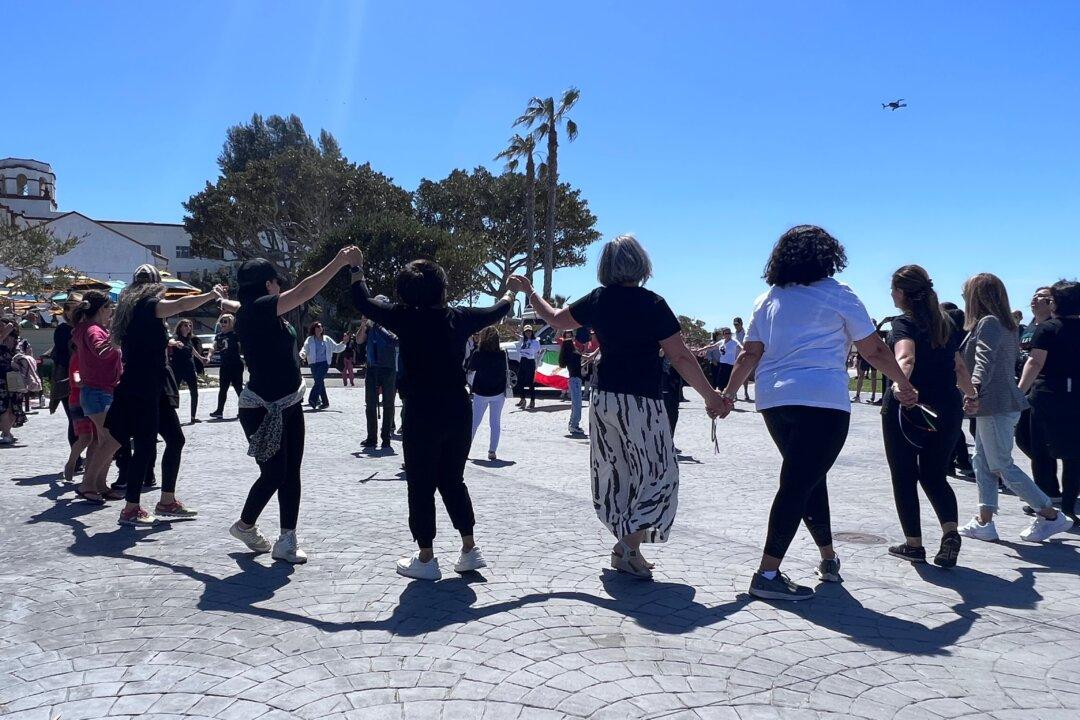Orange County Iranian Americans surprised beachgoers at the main beach in Laguna Beach, California on April 8 with a flash mob, where a group of around 40 women danced along to the beat of popular pre-Islamic Republic music for the Persian New Year.
The event is the latest way the community is showing support and raising awareness of the protests for basic human rights that have erupted in Iran since the death of 22-year-old Mahsa Amini on Sept. 16 after three days in Iranian police custody. She was allegedly detained by the so-called Islamic morality police in Tehran for showing a few strands of her hair, a dress code violation in the country.





